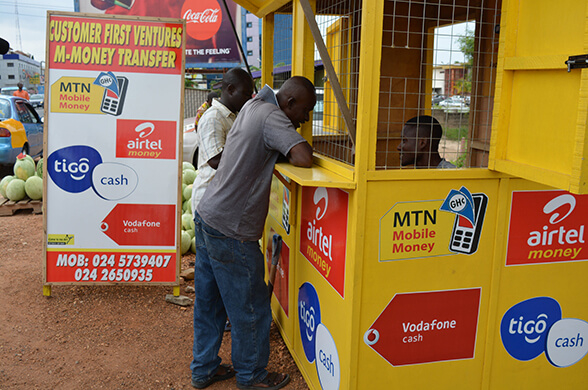The Ministry of Finance says the proposed 1.75 percent E-Levy will not cover recipients of Mobile Money transactions.
The Ministry said it was only the sender who would be charged the Levy, and that the Levy did not cover the 100 cedis to be sent in a day.
“For instance, if you’re sending 500 cedis to your mother, the first 100 cedis on that 500 is exempted. You will be charged the 1.75 percent on the 400 cedis of the money that you’re sending.
Your mother on the other hand will not pay anything for withdrawing the money,” Dr John Kumah, a Deputy Minister of Finance, said at a press conference in Accra on Friday.
“You won’t pay anything on all transactions from your bank account to your MOMO account. And if you transfer money from your bank account to your MOMO account, you won’t pay anything. It is when you transfer MOMO from your account to another account that the levy will apply,” he added.
Dr Kumah said the levy did not cover traditional bank transfers and cheques, adding, however, that “if you transfer to a MOMO or the traditional transfers that the banks do, the E- levy will affect the bank fees and not the customers’ funds.”
Merchants Payments using the POS and QR Code are regarded as digital transactions and so they are covered by the levy, he added.
Dr Kumah further indicated that E-Commerce and online services would be charged for payments for goods and services.
The E-Levy, which was announced by the Finance Minister during the 2022 Budget presentation in Parliament on Wednesday, is a 1.75 percent tax on mobile money and other electronic (E) transactions that exceed GH¢100.00 per customer per day.
The proposal will take effect after the Budget has been approved by Parliament.
The Government said it aimed to grow domestic revenue by 44 percent next year, and had projected the E-Levy to accrue about GH¢6.5 billion next year.
Dr Kumah said it was a necessity for the Government to devise mechanisms to shore up domestic revenue to enable it prosecute its developmental agenda.
He said the government was however concerned about the economic challenges confronting a section of the population, hence its decision to limit the E-levy to transactions that exceeded 100 cedis.
He said research conducted by consultants contracted by the Ministry revealed that about 40 percent of Mobile Money users either sent or received less than GH¢100.00 per day.
He said the government took a firm decision to abolish road tolls in the interest of the state, emphasizing that the E-Levy will make up for the GH¢78 million generated annually from the collection of the tolls.
“I would like to assure the public that this E-levy that we are introducing, we are going to see aggressive road construction in this country.”
“…When we all accept the levy, what it will mean is that contractors can be paid on time and more roads can be constructed in our country,” he said.







